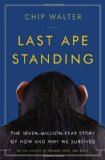January 30, 2013

Predictably Irrational, Revised and Expanded Edition: The Hidden Forces That Shape Our Decisions by Dan Ariely (2009) is today’s Kindle Daily Deal for $2.99. (Thanks to Daniel M. Barros for the tip!)
Book description from the publisher:
How do we think about money?
What caused bankers to lose sight of the economy?
What caused individuals to take on mortgages that were not within their means?
What irrational forces guided our decisions?
And how can we recover from an economic crisis?
In this revised and expanded edition of the New York Times and Wall Street Journal bestseller Predictably Irrational, Duke University’s behavioral economist Dan Ariely explores the hidden forces that shape our decisions, including some of the causes responsible for the current economic crisis. Bringing a much-needed dose of sophisticated psychological study to the realm of public policy, Ariely offers his own insights into the irrationalities of everyday life, the decisions that led us to the financial meltdown of 2008, and the general ways we get ourselves into trouble.
Blending common experiences and clever experiments with groundbreaking analysis, Ariely demonstrates how expectations, emotions, social norms, and other invisible, seemingly illogical forces skew our reasoning abilities. As he explains, our reliance on standard economic theory to design personal, national, and global policies may, in fact, be dangerous. The mistakes that we make as individuals and institutions are not random, and they can aggregate in the market—with devastating results. In light of our current economic crisis, the consequences of these systematic and predictable mistakes have never been clearer.
Packed with new studies and thought-provoking responses to readers’ questions and comments, this revised and expanded edition of Predictably Irrational will change the way we interact with the world—from the small decisions we make in our own lives to the individual and collective choices that shape our economy.
Comments (0)
- psychology

Last Ape Standing: The Seven-Million-Year Story of How and Why We Survived by Chip Walter (Walker & Co., 2013)
(kindle ed.), (amazon.co.uk)
Book description from the publisher:
Over the past 180 years scientists have sifted through evidence that at least twenty-seven human species have evolved on planet Earth. And as you may have noticed, twenty-six of them are no longer with us, done in by their environment, predators, disease, or the unfortunate shortcomings of their DNA. What enabled us to survive when so many other human species were shown the evolutionary door? Last Ape Standing: The Seven-Million-Year Story of How and Why We Survived by acclaimed science journalist Chip Walter tells the intriguing tale of how against all odds and despite nature’s brutal and capricious ways we stand here today, the only surviving humans, and the planet’s most dominant species.Drawing on a wide variety of scientific disciplines, Walter reveals how a rare evolutionary phenomenon led to the uniquely long childhoods that make us so resourceful and emotionally complex. He looks at why we developed a new kind of mind and how our highly social nature has shaped our moral (and immoral) behavior. And in exploring the traits that enabled our success, he plumbs the roots of our creativity and investigates why we became self-aware in ways that no other animal is. Along the way, Last Ape Standing profiles other human species who evolved with us and who have also shaped our kind in startling ways – the Neanderthals of Europe, the “Hobbits” of Indonesia, the Denisovans of Siberia, and the recently discovered Red Deer Cave people of China, who died off just as we stood at the brink of civilizations eleven thousand years ago.Last Ape Standing is an engaging and accessible story that explores the forces that molded us into the peculiar and astonishing creature that we are.
See also: Author’s website All Things Human
Comments (0)
- human evolution,new books
January 28, 2013

Physics in Mind: A Quantum View of the Brain by Werner R. Loewenstein (Basic Books, 2013)
(amazon.co.uk)
Book description from the publisher:
No one can escape a sense of awe when reflecting on the workings of the mind: we see, we hear, we feel, we are aware of the world around us. But what is the mind? What do we mean when we say we are “aware” of something? What is this peculiar state in our heads, at once utterly familiar and bewilderingly mysterious, that we call awareness or consciousness?
In Physics in Mind, eminent biophysicist Werner R. Loewenstein argues that to answer these questions, we must first understand the physical mechanisms that underlie the workings of the mind. And so begins an exhilarating journey along the sensory data stream of the brain, which shows how our most complex organ processes the vast amounts of information coming in through our senses to create a coherent, meaningful picture of the world. Bringing information theory to bear on recent advances in the neurosciences, Loewenstein reveals a web of immense computational power inside the brain. He introduces the revolutionary idea that quantum mechanics could be fundamental to how our minds almost instantaneously deal with staggering amounts of information, as in the case of the information streaming through our eyes.
Combining cutting-edge research in neuroscience and physics, Loewenstein presents an ambitious hypothesis about the parallel processing of sensory information that is the heart, hub, and pivot of the cognitive brain. Wide-ranging and brimming with insight, Physics in Mind breaks new ground in our understanding of how the mind works.
Google Books preview:
See also: Book website
Comments (0)
- cognitive science,new books
January 26, 2013

This Explains Everything: Deep, Beautiful, and Elegant Theories of How the World Works ed. by John Brockman (Harper Perennial, 2013)
(kindle ed.), (amazon.co.uk)
Book description from the publisher:
Drawn from the cutting-edge frontiers of science, This Explains Everything will revolutionize your understanding of the world.
What is your favorite deep, elegant, or beautiful explanation?
This is the question John Brockman, publisher of Edge.org (“The world’s smartest website”—The Guardian), posed to the world’s most influential minds. Flowing from the horizons of physics, economics, psychology, neuroscience, and more, This Explains Everything presents 150 of the most surprising and brilliant theories of the way of our minds, societies, and universe work.
Jared Diamond on biological electricity • Nassim Nicholas Taleb on positive stress • Steven Pinker on the deep genetic roots of human conflict • Richard Dawkins on pattern recognition • Nobel Prize-winning physicist Frank Wilczek on simplicity • Lisa Randall on the Higgs mechanism • BRIAN Eno on the limits of intuition • Richard Thaler on the power of commitment • V. S. Ramachandran on the “neural code” of consciousness • Nobel Prize winner ERIC KANDEL on the power of psychotherapy • Mihaly Csikszentmihalyi on “Lord Acton’s Dictum” • Lawrence M. Krauss on the unification of electricity and magnetism • plus contributions by Martin J. Rees • Kevin Kelly • Clay Shirky • Daniel C. Dennett • Sherry Turkle • Philip Zimbardo • Lee Smolin • Rebecca Newberger Goldstein • Seth Lloyd • Stewart Brand • George Dyson • Matt Ridley
See also: 2012 Annual Question at Edge.org
Comments (0)
- culture,new books,reality

The Intercorporeal Self: Merleau-Ponty on Subjectivity by Scott L. Marratto (SUNY Press, 2013)
(kindle ed.), (amazon.co.uk)
Book description from the publisher:
An original interpretation of Merleau-Ponty on subjectivity, drawing from and challenging both the continental and analytic traditions. Challenging a prevalent Western idea of the self as a discrete, interior consciousness, Scott L. Marratto argues instead that subjectivity is a characteristic of the living, expressive movement establishing a dynamic intertwining between a sentient body and its environment. He draws on the work of the French philosopher Maurice Merleau-Ponty, contemporary European philosophy, and research in cognitive science and development to offer a compelling investigation into what it means to be a self.
“The Intercorporeal Self amounts to a kind of dialectic between Merleau-Ponty’s thought and naturalism as it functions within contemporary analytic thought and deconstruction as it appears in Derrida’s thought. Marratto constructs argumentation that shows that Merleau-Ponty’s thought cannot be reduced to naturalism and that it does not fall prey to the deconstructive critique. Consequently, Marratto, better than anyone else, shows the contribution that Merleau-Ponty makes to contemporary philosophy.This is an important book. I would even venture to say that it is a genuine work of philosophy.” — Leonard Lawlor, Sparks Professor of Philosophy, Penn State University
“Marratto brings Merleau-Ponty’s phenomenology into a mutually transformative dialogue with the latest trends in the embodied sciences of the mind. His book puts side by side notions of intercorporeality, habit, style, and auto-affection with Gestalt, ecological, sensorimotor, and enactive perspectives on perception and subjectivity. Marratto weaves together the threads of conceptual traditions that saw themselves as incompatible not so long ago. A significant contribution to current efforts toward reconceptualizing the lived body as the matrix of significance and expressive being-in-the-world, and subjectivity as self-affecting, self-initiated movement and intercorporeal attunement to the demands of other bodies.” — Ezequiel A. Di Paolo, coeditor of Enaction: Toward a New Paradigm for Cognitive Science
Google Books preview:
Comments (0)
- new books,self







